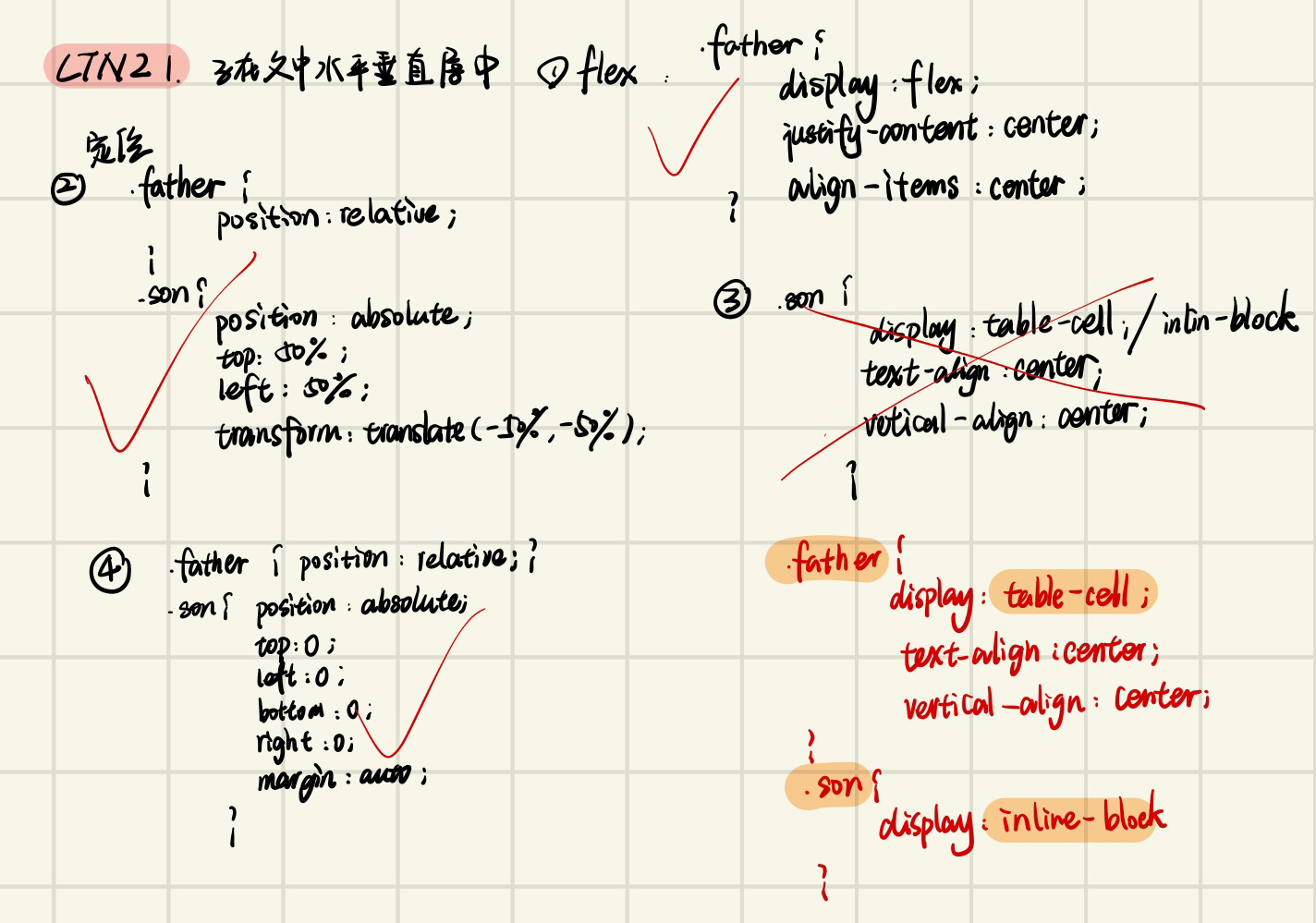子盒子在父盒子中水平垂直居中有几种方法?
<head>
<style>
.father {
width: 800px;
height: 650px;
}
.child {
width: 300px;
height: 150px;
}
</style>
</head>
<body>
<div class="father">
<div class="child">子盒子</div>
</div>
</body>
记忆法(4个):①flex ②绝对定位50% ③table-cell ④绝对定位4个0
『注意:③中父级给了table-cell - 使父级以单元格形式呈现,子级的 inline-block 是为了使其内容变为文本格式,但仍旧可以设置宽高』

1️⃣不需要知道子盒宽高
1.flex布局
/* 父盒子 */
.father {
display: flex;
justify-content: center;
align-items: center;
}
2.绝对定位 + transform-50%
.father {
position: relative;
}
/* 子盒子 */
.child {
position: absolute;
top: 50%;
left: 50%;
transform: translate(-50%, -50%);
}
/* 在已知子盒子宽高的情况下, transform 可以改为 margin -> 性能考虑 */
.child {
margin: -75px 0 0 -150px;
}
3.绝对定位 四个方向0 + margin:auto
.father {
position: relative;
}
/* 子盒子 */
.child {
position: absolute;
left: 0;
right: 0;
top: 0;
bottom: 0;
margin: auto; /* 四边均衡受力从而实现盒子的居中 */
}
4.table-cell + 文本格式
.father {
display: table-cell; /* 能够使元素呈单元格的样式显示 */
vertical-align: middle; /* 内容垂直居中 */
text-align: center; /* 内容水平居中 */
}
.child {
display: inline-block; /* 『使其内容变为文本格式,但仍旧可以设置宽高』 */
}
2️⃣ 行内元素的一些居中属性
text-align: center;
vertical-align: middle;
line-height: 100px;
height: 100px;
③ 块元素的一些居中属性
/* 当前元素必须有宽度 */
margin :0 auto;